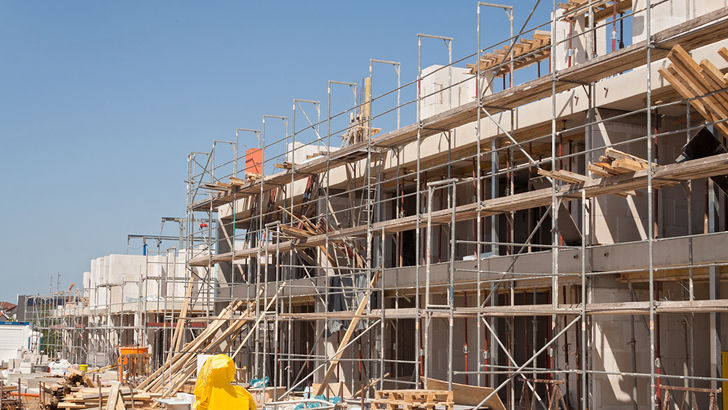Why you can't afford to ignore reporting season (even if you don't invest)
By Nathan Bell
Usually reporting season is the time to check how your companies are performing. But as this year marks 10 years since the onset of the GFC, there's much more to consider.
While the GFC briefly brought depression conditions to the US and Europe following their housing busts, Australia escaped due to a combination of low household debt and an unprecedented credit binge in China.
Ten years later, Australia shares much in common with the US circa 2006. Our banks are producing record profits as interest-only loans reach record proportions.
Over 40% of loans on the big four's balance sheets are reportedly interest only, split roughly evenly between homeowners and investors.
As America's housing boom was like a ticking time bomb due to honeymoon loans that eventually reset to normal levels, Australia's thirst for interest-only loans that eventually must become regular loans is eerily like the trigger that collapsed the US economy and financial system.
I was in Year 11 at high school last time there was an Australian recession. An entire generation doesn't know how painful a recession can be, and Australia hasn't had a housing-led recession in modern history.
This reporting season will be filled with companies enjoying a property and construction boom thanks to low interest rates: from retailers like Bunnings and Harvey Norman, which help people furnish their new homes or apartments, to banks and civil construction companies like Lendlease.
Lendlease's massive infrastructure projects employ thousands of people who also invest in property, showing the positive feedback loop that low interest rates have on an economy.
Whether you're a seasoned investor, or someone who only pays lip service to their annual superannuation statement, Australia's current personal debt levels mean you can't afford to ignore this reporting season.
Coming home from my son's footy on the weekend, my kids and I counted over 20 cranes in inner Sydney. There are currently more cranes operating in Australia than there are across America's major cities.

This is a sign that current levels of economic activity, when combined with record personal debt levels, are not sustainable.
Eventually Australia's 25-year Goldilocks run of economic growth will come to an end - violently if the housing market rattles, or slowly as consumers pay back ever higher amounts of debt when interest-only loans reset or perhaps as borrowing rates increase.
In prosperous periods like today, it's smart to carefully build a portfolio that can withstand periods of stress. The next eight years promise to be far more difficult than the past eight as central banks around the world have exhausted their ammunition.
This reporting season make sure you ask yourself at least these three questions:
- Are the companies I own the right ones to hold through a downturn?
- With the Aussie dollar at a cyclical high, am I making the most of opportunities abroad, which will also help cushion my portfolio during the next downturn?
- Am I too focused on receiving dividends today rather than earning more reliable total returns tomorrow from less risky and cyclical stocks, such as Australian banks?
At Peters MacGregor we invest in high-quality businesses abroad. This reporting season our virtually debt-free US home builder has benefited from the housing recovery in the US.
Our Chinese technology companies are growing rapidly due to the revolution in mobile internet use, as is our global portfolio of internet broadband providers. Our European banks are also benefiting from a European recovery and they pay 3%-4% dividend yields, which will increase along with interest rates.
With the Aussie dollar at a cyclical high, now is a good time to diversify your portfolio from the large risks building at home. Even if you don't invest directly in shares, you still must decide how much of your superannuation fund is invested at home or abroad, and what mix of shares and other assets to hold.
We don't expect interest rates to increase rapidly or too much anywhere given that today's debt levels exceed those during the GFC.
But in contrast to Europe, for example, where economies are recovering and higher interest rates would be good for our bank holdings, higher interest rates in Australia or Canada could severely disrupt their property booms.
If, like most Australians, you have a very high proportion of your assets invested in Australian housing, either directly or indirectly through bank shareholdings, now is a good time to carefully consider overseas exposure and reducing any large debts.
That said, the US stockmarket is particularly expensive currently, so buying an ETF or index fund based on a broad range of large US companies could produce lousy returns over the next decade. A safer bet might be to choose active managers that have a history of adding value through tough times.
Lastly, think about which sectors and assets have benefited the most from falling interest rates. It may be time to shift away from them and to assets that can perform as interest rates increase.
The big winners of the past five years, such as infrastructure and property, are highly unlikely to be the big winners over the next five.
Get stories like this in our newsletters.


